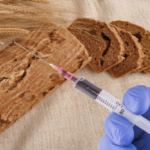In 1996 researchers from the Universidade Federal de Minas Gerais (Federal University of Minas Gerais) got together and created the Grupo de Pesquisa em Farmacoepidemiologia (Research Group on Pharmacoepidemiology) to develop studies within the Public Health and Pharmaceutical Services.
The need to support the development of public policies in the field of health economics, especially of pharmacoeconomics, culminated in the creation, in 2004, of the Grupo de Pesquisa em Economia da Saúde (Research Group on Health Economics).
In 2008, the Department of Science and Technology (DECIT) of the Ministry of Health invited several researchers of these related fields to integrate a network: the Rede Brasileira de Avaliação de Tecnologias em Saúde (REBRATS; in free translation, National Network for Health Technology)
From the confluence of these initiatives and from the need to open a communication channel between society and health managers, the Project of Collaborating Centre of SUS for Technology Assessment in Health and Excellence (CCATES) was born in 2009. It is a nonprofit Centre aiming to contribute to the decision making process through the production, articulation and dissemination of independent information.
Since its creation, the Center is part of REBRATS and maintains an institutional partnership with the Ministry of Health and the Minas Gerais State Health Department.
CCATES is fundamentally interdisciplinary, with researchers and collaborators from the fields of Pharmacy, Medicine, Economics, Statistics, Law and Informatics who develop studies and actions with high technical and scientific standards in the areas of epidemiology, pharmacovigilance and health economics.
Among many activities, the Collaborating Centre makes the analysis of administrative and judicial requests for drugs, procedures and medical devices, and produces fast opinions on relevant health issues, for example on public policies and technologies available to the population.
The Collaborating Center operates in Translational Medicine which consists of the transfer and incorporation of basic biomedical knowledge in health technology, such as drugs, medical devices and public policies. Together, CCATES makes the Monitoring Technological Horizon, which consists in the prospecting of emerging technologies to enable strategic planning in Health.
To evaluate the results of the technologies incorporated health or perspective of incorporation by the Unified Health System (SUS), the Center conducts analyzes of Clinical Effectiveness through direct interaction with patients/users and evaluation of indirect sources of information, as medical records and administrative databases.
To promote and disseminate scientific evidence independently to prescribers, the CCATES operates in Academic Detailing, which is the medical visitation to contribute to the practice of evidence-based medicine.
All activities developed by CCATES are aimed at ensuring universal and equal access of population to health actions and services by facilitating discussion and decision making by healthcare professionals and managers. Ultimately, the work of the Center aims to improve the effectiveness of treatments for the individual and society.




























